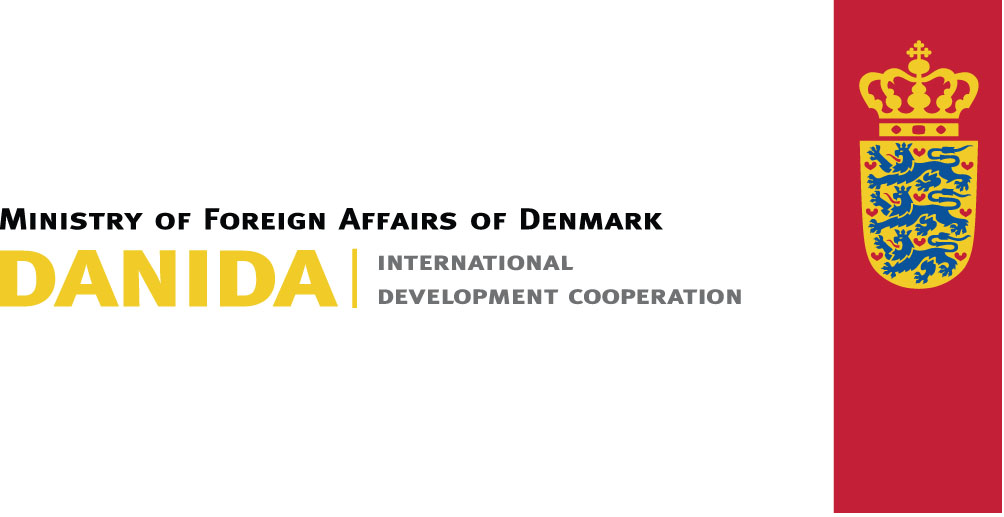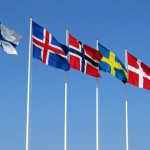It’s the small things that make or break a city, small things that pile up and form a concept of breath – or death. As a Swedish cultural imperialist, I came with the notion of Denmark being nothing more than a country filled with drunks and criminals. (My former impressions of Copenhagen are mainly built on the movie Pusher, and to be honest I’m a tad bit disappointed by the lack of pit-bulls, gold chains and cocaine mountains). But gradually it got to me, the friendly smiles by shopkeepers, urban rustic life, cheap beer and good food. The subway stations in central Copenhagen looks like they were directly imported from Black Mesa and we checked all corners for face huggers.
As the day progressed and we visited Danida, UNDP and CONCORD, I noticed how they all, seemingly unknowing, shared a common issue. Danida is a part of the Danish Foreign Ministry with the responsibility of overseeing the Danish development funds, which is basically foreign aid. They have been around for decades and Denmark is one of five UN member states which lives up to the UN aid goal of member states investing 0.7% of their GDP on foreign aid.
Lately, they have been receiving a lot of bad press due to the economic situation. It’s hard to justify foreign aid spending when the rest of the country is being hit by cutbacks: “why spend on them when we can’t spend on ourselves?”.
But as Jacob Haugaard of Danida puts it: “it’s not spending, it’s investing”. It is in our own interest that foreign countries with a not-so-safe-state of affairs improve. Economic and human development growth is an essential part to bring peace and stability to regions which has none or little. In fact, one could argue that nationalist right wing parties should be the front runners of foreign development as it would surely decrease immigration.
Mette Fjällan of UNDP expressed a similar view, that economic and human development stands in the centre of progressing the world towards a more peaceful state. A veteran with more than 20 years of development work, she hammered us during the better part of an hour with its importance and pointed towards the fact that nowadays 90% of all kids are enrolled in school. Critics, rightfully so, points out that being enrolled and actually learning something are two very different things. But one step at a time, if she could wave a magic wand I’m sure she would do so. We are heading in the right direction, not all of the Millenium Goals have been achieved and there is still a 1000 days to go – but! each of them have been improved. We are not in the same boat as we were in the 1990s.
And here is the common issue: Concord, an umbrella organisation for hundreds of NGOs, sees this quite often in the general public of Europe. We still conceptualize the world as it was in the 1960s. Africa is a poor mud dump in the middle of nowhere with people living in huts and are generally lazy. But on the contrary my dear sir/madam many of them are in reality the fastest growing economies in the world, some due to extraction of natural resources and some of them through rapid industrialization. We shouldn’t expect them to take the same route as the Asian tiger economies as their situation is quite different. That’s what a few hundred years of colonization and drainage of their human capital does for you. Never mind using the north of Sahara countries as our personal chessboard during World War 2. Hans Rosling often in his lectures emphasizes that infant mortality rates and the number of children per family have both decreased drastically the past 40 years. Mette from UNDP falls in unison and highlights that we are conforming worldwide and are today sharing more problems than ever before. Malnutrition is a serious problem both in the United States and Bolivia, one a super power and one a mid income country.
It’s a democratic issue where the Western Governments and the UN have spent far too little time to communicate and listen to the Western population to increase understanding and knowledge about the world around them. These things wont come automatically through magic. The Nordic Council flies very much under the radar with little public knowledge, and question is how democratic it is to have collaborations that no one knows about. Danida and UNDP suffers from this too, internally they know how important their work is but they seem to have a hard time communicating this to the common man and woman. How can a farmer in France relate to a bridge being built in Vietnam? It seems that in all this developing, the Western population have not been sufficiently included, even though they too are a part of the process.
We need more national and global debates that engage the regular people. The UN has taken a small step with the post 2015 goals by setting up a website where anyone can contribute to the post 2015 goals. One small step for mankind but one giant leap for the United Nation. A partnership is only legit as long as its constituents think it is a good idea. Head over to www.myworld2015.com and have your say!
Text: Daniel Brandt




